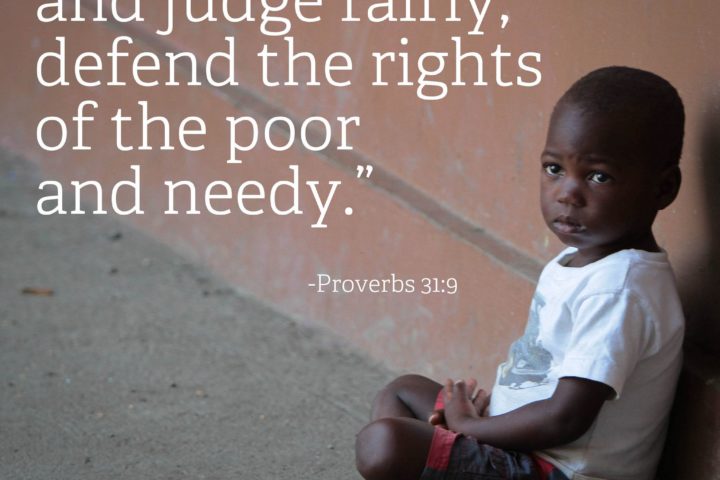Speak up for those who cannot speak for themselves, for the rights of all who are destitute. Speak up and judge fairly; defend the rights of the poor and needy.
Proverbs 31:8-9
Context of Proverbs 31
Two launchpads for meditation. The first explores the context of these verses within chapter 31 of Proverbs. Although much focus is given to the noble woman of Proverbs 31, the wisdom of a mother on how to be a noble king that starts the chapter is often neglected.
To help us understand the context, let’s look at Proverbs 31:1-9.
The sayings of King Lemuel—an inspired utterance his mother taught him. Listen, my son! Listen, son of my womb! Listen, my son, the answer to my prayers! Do not spend your strength on women, your vigor on those who ruin kings. It is not for kings, Lemuel— it is not for kings to drink wine, not for rulers to crave beer, lest they drink and forget what has been decreed, and deprive all the oppressed of their rights. Let beer be for those who are perishing, wine for those who are in anguish! Let them drink and forget their poverty and remember their misery no more. Speak up for those who cannot speak for themselves, for the rights of all who are destitute. Speak up and judge fairly; defend the rights of the poor and needy.
What we read in Proverbs 31:8-9 is part of the wisdom of a mother to her son who was king. In context verses 8-9 state positively what a king should do in contrast to two things a king should not do.
First, a king should not use his power to accumulate many wives. God specifically warned against this in Deuteronomy 17:17a – “The king must not take many wives for himself, because they will turn his heart away from the Lord.” Unfortunately, neither David (see 2 Samuel 11-12) nor Solomon (see 1 Kings 11) lived up to this wisdom in Proverbs 31. Their kingships were destroyed through using their power to have more than one wife.
The second thing a king should not do is consume alcohol in such a way as to deprive the oppressed of their rights. The concern of the mother is that alcohol can affect memory and judgement. The king must remember God’s commands and apply them with sound judgement.
Instead of failing to uphold laws that protect the poor, the king should “speak up for those who cannot speak for themselves, for the rights of all who are destitute. (He should) speak up and judge fairly; (He should) defend the rights of the poor and needy.” (Proverbs 31:8-9)
Instead of abusing power for personal pleasure, the king should bring justice to those who are most easily oppressed. The poor can be easily oppressed because they may be too socially and economically weak to defend themselves from the rich and powerful. By protecting the rights of the poor, the ideal king is living out the justice of God.
Or as Psalm 72:1-4 pleads, “Give the king your justice, O God, and your righteousness to the royal son! May he judge your people with righteousness, and your poor with justice! Let the mountains bear prosperity for the people, and the hills, in righteousness! May he defend the cause of the poor of the people, give deliverance to the children of the needy, and crush the oppressor!”
Application of Proverbs 31
In the 2nd launchpad for meditation we will consider possible applications. Most likely, you are not a king, so you may be wondering what relevance this text has for you.
One application is to use whatever influence you possess to advocate for leaders who do not abuse power for personal pleasure. In a democratic society, this may mean voting against reckless, sexually promiscuous leaders who distort justice.
A second application is to follow the example of this mother. Teach your children (or any younger person you have an influence on) what it means to use power well. Teach them to use whatever powerful positions they may possess in the future to give rather than to take.
A third application is to use whatever power you possess to speak in defense of those who are most vulnerable in society. Although we are not kings, we can follow the example of the ultimate king: King Jesus. Our great King sought to serve the destitute, the poor and needy, the widow, and the marginalized.
So my prayer today is that by putting in the hard work of understanding the context of Proverbs 31:8-9, we can be more faithful in applying this teaching in our lives.



